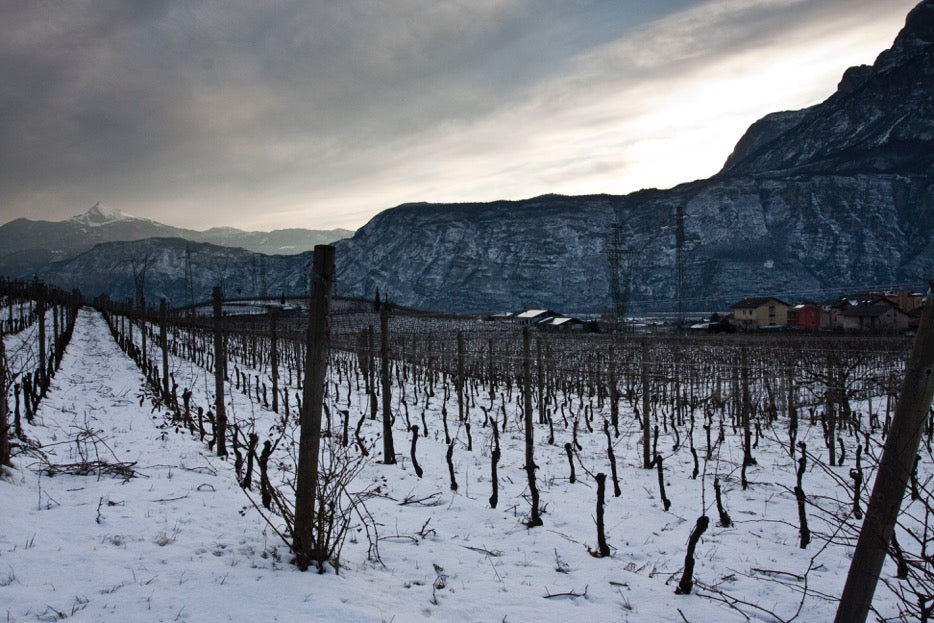They are warm, sweet, enveloping and fine wines. And all this thanks to the winter frost, meticulous practices in the vineyard and cellar, special climatic conditions, and the harvest that takes place under the light of the moon. Eiswein are the sign that wonders can arise from contrasts. But what is it about?
Ten questions and ten simple answers about Eiswein. Because sweet wines have always fascinated the senses and imagination of wine enthusiasts.
1. What are Eiswein?
Eiswein (or Icewine or vin de glace or ice wines) are made from frozen grapes , literally. The principle is to freeze the water inside the grapes, already known to the ancient Romans.
The grapes are immediately pressed in low temperature rooms and the frozen water is not extracted, to obtain an extremely concentrated must, rich in sugars and acids.
2. What wines are Eiswein?
These are dessert wines, sweet, therefore based on the principle of drying the grape which involves the strong reduction of water in the grape. The objective is to concentrate sugars, organic acids, mineral salts and aromas as much as possible.
3. The basic characteristic of Eiswein?
The drying of the grapes leading to Eiswein takes place on the vine . The harvest is carried out very late, by hand, between December and February, with an atmospheric temperature of around 8° C below zero, when the bunches are frozen. It is usually harvested at night or at first light. After the harvest - carried out as quickly as possible - the grapes are immediately pressed with soft pressing; slow fermentation (can take months), vinification in steel or wood.
4. Other characteristics of Eiswein?
The preparation of the vines is meticulous and tiring, the yields are very low , the production is equally limited and not guaranteed every year. And then, leaving grapes on the plants for so long exposes the crop to many risks. Eiswein are extreme wines , and it is clear why they are such fine products.
5. Where are Eiswein produced?
In cold regions, often at altitude, in areas where peculiar climatic conditions occur. With different specifications, Eiswein are produced mainly in Germany , Austria and Canada (the main Icewine producer in the world).
6. Germany and Eiswein?
Germany is considered the homeland of Eiswein because at the end of the eighteenth century, in Würzburg, it seems that an unexpected frost made modernity discover the pleasantness of such wines. We also owe the first true twentieth-century experiments to the German Hans Georg Ambrosi. Today it produces exceptional Eiswein, especially in these regions: Mosel, Rheinhessen, Pfalz and Rheingau. All this, incidentally, despite the fact that "ice wines" were already produced by the ancient Romans.
7. And in Italy?
Italy is not the best known area for the production of these wines, but some winemakers in recent years have started producing good quality Icewine. For some years, in fact, small quantities of Eiswein have been produced in high altitude vineyards in Valle d'Aosta (vin de glace) and Trentino Alto Adige , Piedmont and also Emilia Romagna .
8. Which vines are most suitable for producing Eiswein?
It depends on the areas. Above all Riesling (especially in Germany), the true prince of Eiswein and then the hybrid grape of French origin called Vidal (in Canada), Gewürztraminer , Scheurebe , Pinot Blanc and Muscat Ottonel (in Austria), but also Chardonnay, Chenin Blanc, Ehrenfelser , Kerner, Seyval Blanc... Among the red grapes, the most used is Cabernet Sauvignon but Merlot, Pinot Noir, Syrah and Blaufränkisch are also used.
In Emilia Romagna especially aromatic Malvasia di Candia and white Moscato.
9. What are the Eiswein like?
If produced from white grapes they have warm yellow colors (from gold to amber to topaz), pink in the case of black grapes. They are very fragrant, with aromas reminiscent of ripe exotic fruit, sweet spices, honey, caramel... They are very sweet wines, but the sweetness is balanced by acidity and minerality, which makes tasting delicious and not cloying.
10. How do you combine Eiswein?
Eiswein can be fantastic meditation wines , to drink alone, for dessert or to accompany blue or mature cheeses - in any case very tasty, capable of keeping up with these fantastic wines with character.




